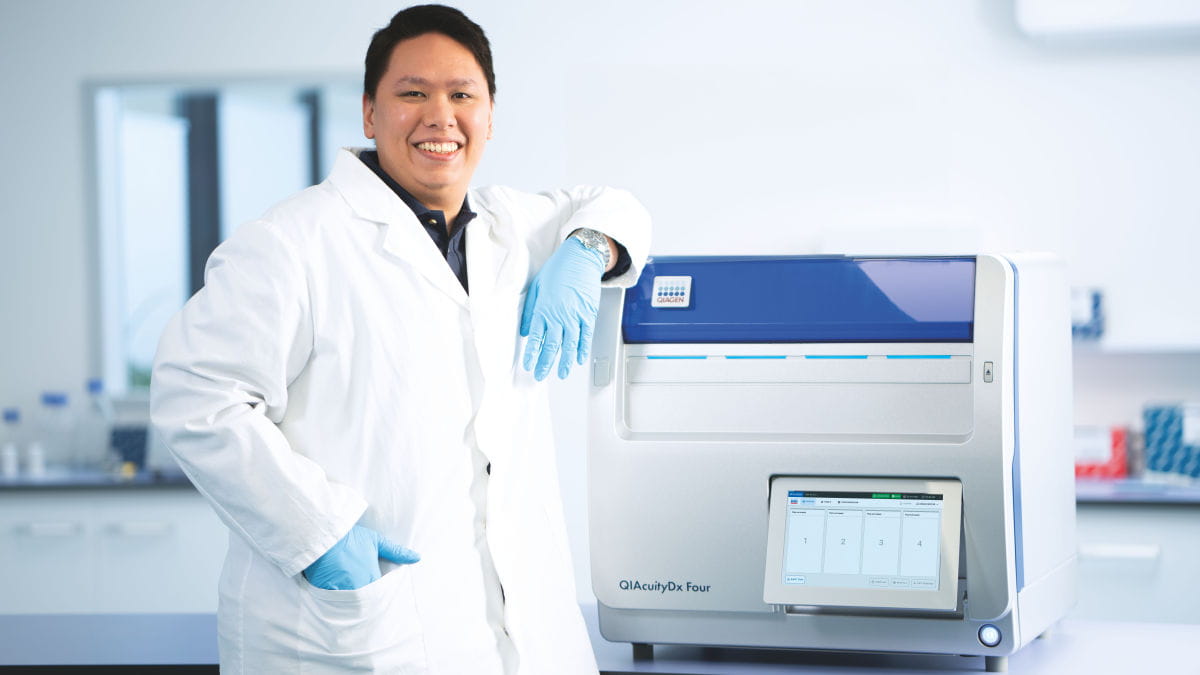08 May 2024 | Wednesday | News

QIAGEN announced a cooperative research and development agreement (CRADA) with the U.S. Federal Bureau of Investigation (FBI) to develop a novel test for its QIAcuity digital PCR devices that will boost forensics by improving the quantification of DNA in human samples.
The collaboration aims to develop a first-of-its-kind digital PCR (dPCR) assay that can simultaneously quantify in absolute terms nuclear and mitochondrial DNA concentrations, male DNA, and include quality markers for degradation and inhibition.
Forensic samples often contain very small amounts of DNA, which can be further compromised by age or environmental factors such as soil. Compared to traditional quantitative PCR, dPCR offers a higher tolerance to inhibitors and enables forensic specialists to detect and quantify even minimal amounts of DNA with high accuracy. This capability significantly improves the success rate of forensic analysis while saving time and money.
Accurate DNA quantification in casework samples is also crucial for informed workflow decisions in successful next-generation sequencing (NGS) analysis. By using the appropriate amount of DNA in library preparation, sequencing errors or biases are minimized. NGS is particularly important for analyzing mitochondrial DNA in traces without nuclear DNA, such as shed hairs, aged bones and teeth, or environmentally exposed samples. This analysis plays a critical role in identifying human remains.
CRADAs enable the sharing of resources and expertise for collaborative research that advances the FBI mission. “The FBI conducts research to develop new capabilities that advance forensic science. This novel digital PCR assay could benefit the FBI and other forensic laboratories. We are excited to collaborate with QIAGEN to evaluate the potential of this capability in forensic casework,” said Eric Pokorak, Assistant Director, FBI Laboratory Division.
“QIAGEN is proud to be working with the FBI Laboratory Division to create one of the first forensic assays able to quantify mitochondrial DNA,” said Richard Price, Vice President and head of the HID and Forensics business at QIAGEN. “Better DNA quantification will allow the FBI’s scientists and the forensic community to analyze a broader range of evidence more quickly, accurately and reliably, even from challenging samples. This advance in forensic science proves the relevance of dPCR in enhancing the reliability and impact of forensic evidence in convicting the guilty and exonerating the innocent.”
QIAGEN’s QIAcuity platform uses nanoplates to disperse a sample over thousands of tiny partitions and then read the reaction in each one simultaneously to quantify even the faintest genetic traces. The dPCR technology used in QIAcuity provides precise, binary results by counting the presence or absence of DNA molecules, resulting in a low error rate and high precision necessary for courtroom testimony.
The QIAcuity systems – available in one, four and eight-plate versions – integrate partitioning, thermocycling, and imaging into one workflow, cutting processing times to only two hours from six. With multiplexing capabilities of up to 5-plex, the one-plate version can process up to 384 samples in an eight-hour shift and the eight-plate version up to 1,248. At the end of 2023, more than 2,000 cumulative instrument placements had been made.
© 2026 Biopharma Boardroom. All Rights Reserved.